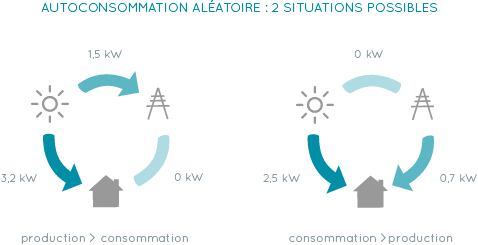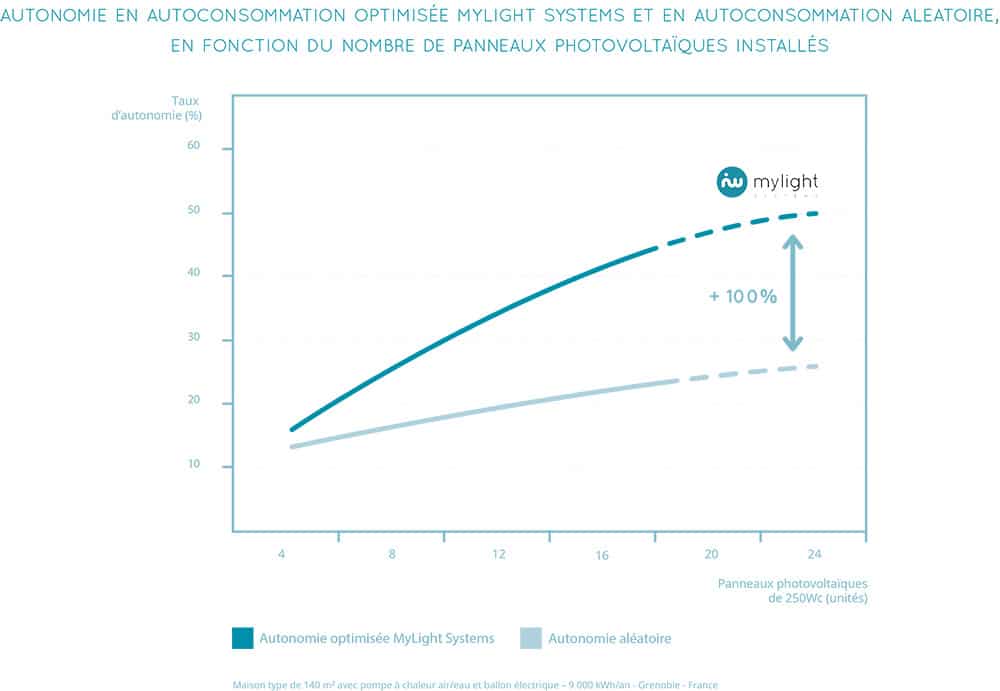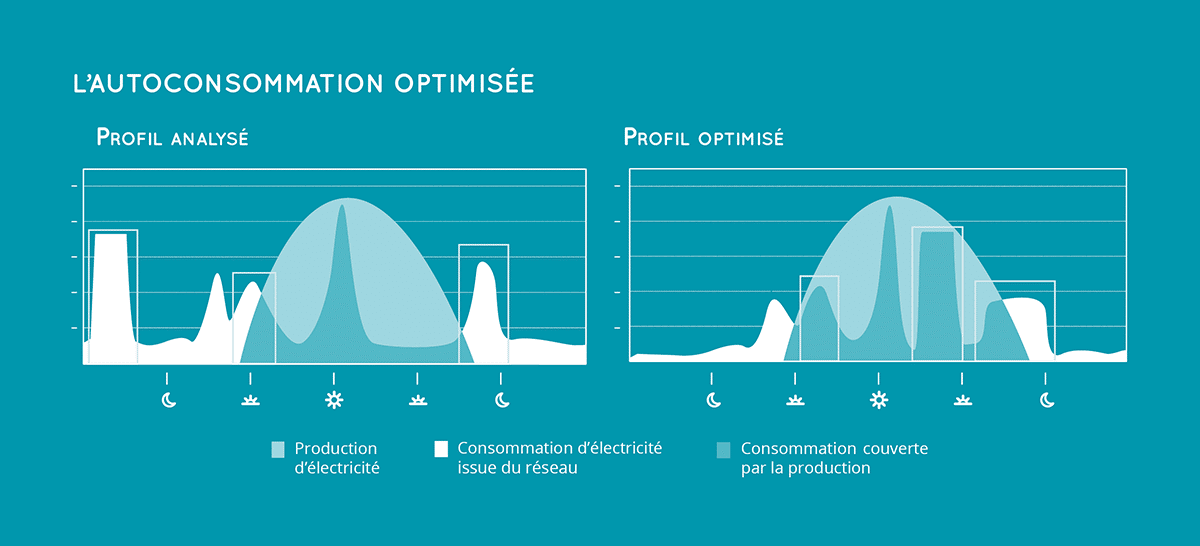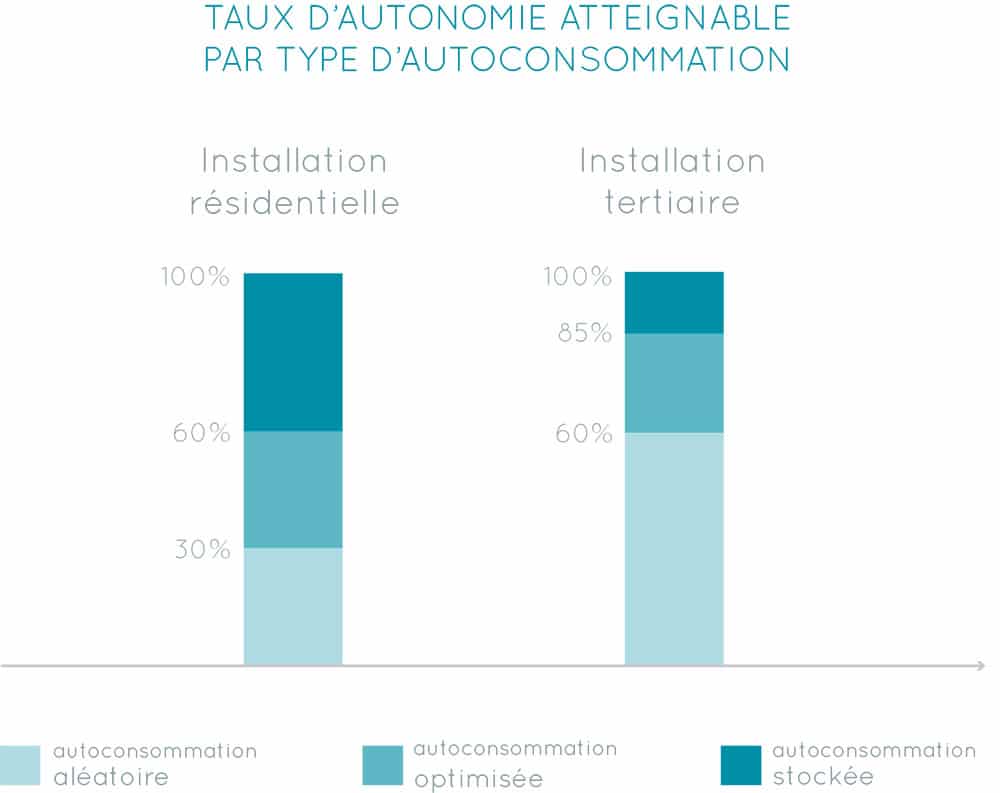Self-consume
What is photovoltaic self-consumption?
Self-consuming means consuming your own photovoltaic electricity production.
Solar electricity now competes strongly with electricity from the grid: self-consuming therefore means saving on your energy bill.
There are three types of photovoltaic self-consumption:
> Random self-consumption
> Optimised self-consumption
> Stored self-consumption

Types of solar self-consumption
Random solar self-consumption
Random photovoltaic self-consumption, i.e. without special management of your consumption, can achieve maximum 30% autonomy (for a residential installation).
When consuming your own solar energy production, the ideal situation is to match production perfectly to the instantaneous consumption.
But there are two other possible scenarios:
> Your consumption is momentarily greater than your production and you have to top up from the public distribution network
> Your consumption is momentarily lower than you production. The surplus electricity produced is then injected into the public distribution network.
Self-consumption therefore requires precise and smart energy management.

Optimised solar self-consumption
Optimised photovoltaic self-consumption controls these two imbalance scenarios to increase the efficiency of your electrical installation and make it more profitable. Optimised solar self-consumption can give you up to 50% autonomy (for a residential installation).
This is the type of photovoltaic self-consumption developed by MyLight Systems.

Energy storage
Stored solar self-consumption incorporates a battery system and thus constantly increasing energy independence. This solution cannot be used to make savings as its cost requires substantial investment.
Note that energy storage also demands management and optimisation.
Battery charge and discharge cycles must be controlled to maximise battery lifetimes.
The MyLight Systems team will therefore naturally include battery management as soon as they are profitable and accessible to all.

